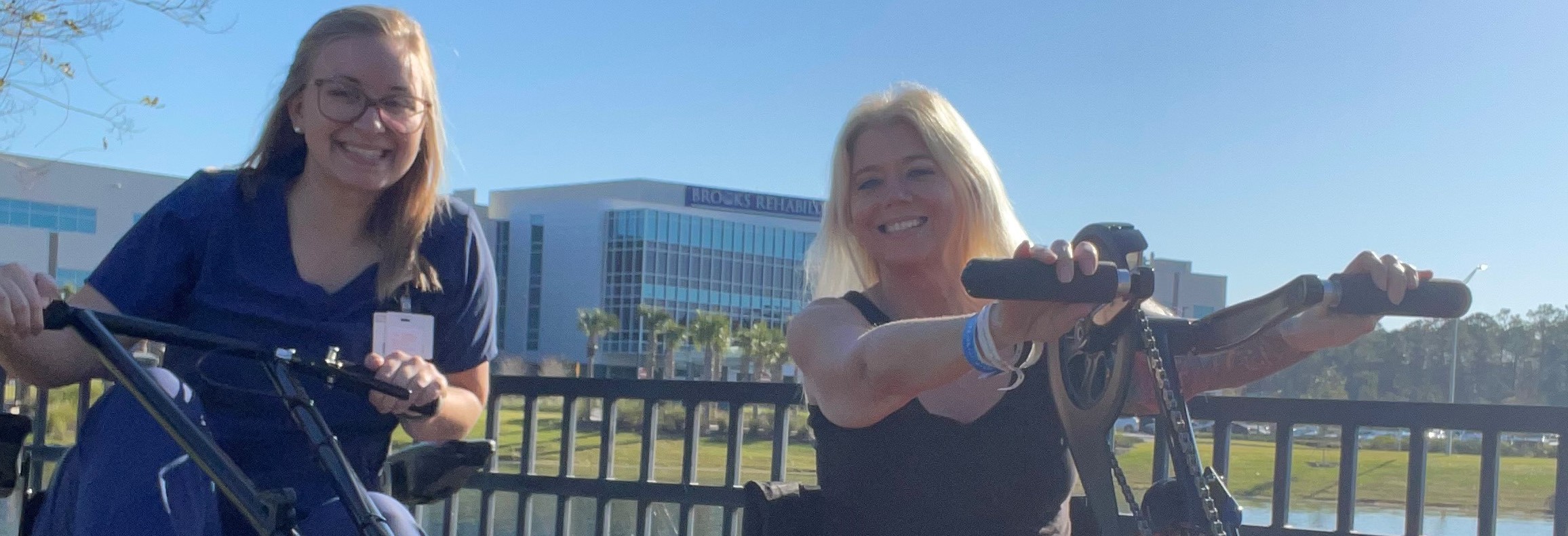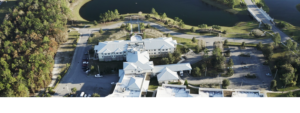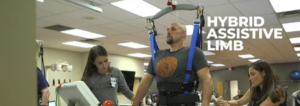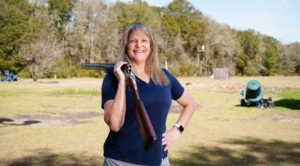Recreation Therapy: Delivered with a Purpose

Back to physical health resource hub
In October of 2022, Chandra Reed was diagnosed with chronic inflammatory demyelinating polyradiculoneuropathy (CIPD), a slowly developing autoimmune disorder in which the body’s immune system attacks the myelin that insulates and protects the nerves. In November, she chose to come to Brooks Rehabilitation Hospital – Bartram Campus to begin her recovery. She immediately began recreation therapy with Nicole Loar, CTRS.
“During my stay at the hospital, I received recreation therapy services and it allowed me to remain motivated and positive while I was experiencing this lifestyle change. I was in rehab for over four weeks and I was two hours away from my family. Due to longer travel time, my family was unable to visit as often as we wanted to which became depressing for me. However, having this form of therapy made each day much brighter as I was able to participate in things that bring me joy again!”
Chandra participated in a variety of activities including ping-pong, ladder ball, yard pong, card games and more. Her favorite experience was going outside and riding an adaptive handcycle around the hospital campus.
“I believe my sessions with recreation therapy were purposeful to my recovery in many ways as I was still able to work on my standing balance, walking, endurance, strengthening, and fine motor skills while still having fun!”
What is the purpose of recreation therapy?
The purpose of recreation therapy is to provide comprehensive therapeutic recreation services that enhance domains such as physical, cognitive, emotional, social, and spiritual needs while maintaining or enhancing levels of function.
Our systematic process:
Upon admission at one of our inpatient hospitals, a Certified Therapeutic Recreation Specialist (CTRS) may assess a patient based on their level of function and leisure interest. An individualized treatment plan is created with goals focusing on one or more of the five domains. During the scheduled treatment sessions, the CTRS will implement evidence-based interventions followed by documentation.
Target goal areas:
- Physical functioning (balance, endurance, ambulation, extremity strength, range of motion, fine motor skills, gross motor skills)
- Cognitive functioning (problem-solving, sequencing, attention, processing speed, memory)
- Communication skills
- Coping skills/Adjustment to diagnosis
- Elevation of mood
- Safety awareness
- Independence
- Leisure education
- Adaptive equipment/technology education
- Community re-integration
Researchers have identified the therapeutic value of incorporating recreational pursuits into the recovery process as it can increase overall health and well-being after a traumatic injury or illness. Research shows that utilizing these pursuits during recovery can also transform negative experiences into positive ones, build self-confidence and improve physical function despite a lifestyle change caused by a disability.
Learn more about our recreation therapy services.





